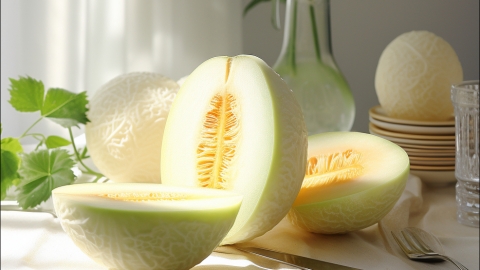Can strawberries and cantaloupe be eaten together?
Generally speaking, bayberries and muskmelons can be consumed together, but excessive consumption should be avoided. A detailed explanation is as follows:

Bayberries and muskmelons are both common fruits. Bayberries are rich in vitamin C, organic acids, and dietary fiber, while muskmelons contain vitamin A, vitamin C, and water. Moderate consumption of these fruits helps supplement nutrients and promote digestion. If an individual has normal gastrointestinal function and is not allergic or intolerant to either fruit, consuming bayberries and muskmelons together is generally safe and unlikely to cause adverse reactions.
However, bayberries contain significant amounts of acidic substances that can stimulate gastric acid secretion when consumed in large quantities, potentially causing gastrointestinal discomfort, especially for individuals with excess stomach acid, who should consume them cautiously. Muskmelons have a cold nature and should be consumed sparingly or avoided by individuals with cold-dampness syndromes of the spleen and stomach, diarrhea, or those suffering from enteritis, to prevent worsening of their condition. Additionally, people allergic to either bayberries or muskmelons should avoid them to prevent allergic reactions.
In daily diets, maintaining a balanced intake of various foods and paying attention to individual physical responses can help maintain good health.




